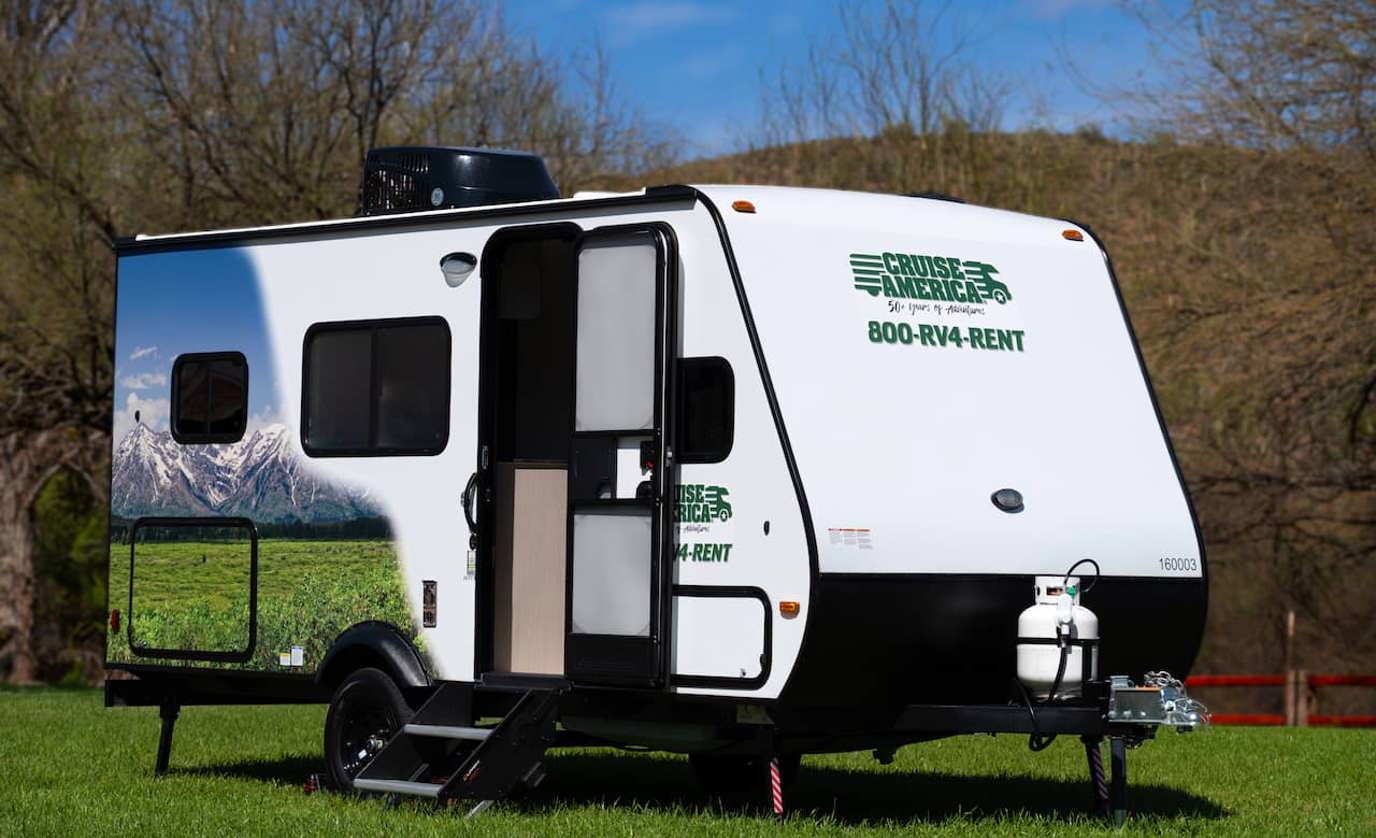
Your Guide to Camping in a Travel Trailer
ShareCamping is "The art of getting closer to nature while getting farther away from the nearest cold beverage, hot shower, and flush toilet." Indeed, when planning a trip, many people would first choose their favorite hotel's nice warm beverages, hot showers, and clean flush toilets. Not you, though. You'd love to go camping in a travel trailer. You want to get out in nature and get dirty, sit around a campfire, and sleep with the forest outside your door.
Does that make you weird? No, far from it! Camping's popularity is steadily growing. Almost 94 million Americans considered themselves "campers" last year, with camping making up 40% of all leisure travel in 2021. More than half of all travelers (53%) included camping as a part of their itineraries in 2021, including 11 million RV owners. Why?
It's simple: Camping in a travel trailer is a great way to enjoy the outdoors while spending quality time with family and friends. Hotels offer creature comforts, sure, but camping offers creature sightings. In general, camping is an escape from the norm, especially so for urban families. In fact, 44% of urbanites planned on replacing a traditional leisure trip with camping in 2022!
How to Prepare Before Departure
There are some unique aspects to prepare for when camping in a travel trailer. While an RV is one vehicle, a trailer hitches to another vehicle, such as a truck or SUV; once hitched, you should check that you have a safe and secure hookup. You also have to check the tire pressure and quality on both your trailer and your tow vehicle.
Beyond that, preparing for camping in a travel trailer shares a lot in common with prepping for RV camping. For however long you're going camping, your trailer will be your home away from home. This means you need to stock it with plenty of food, drinks, clothes, and toiletries, or at least enough to get you started. Depending on how long your trip will be, you can pick up more supplies later on.
When it comes to clothes, choose carefully, since space will be at a premium. Even if it is warm during the day, it could be much cooler at night, so it's smart to bring weather-appropriate attire for both day and night. Make sure you have different types of footwear, too, to fit different situations.
How to Travel With Your Trailer
Towing a travel trailer requires you to pay more attention during set up and when driving.
As mentioned, before you even hit the road, you need first to check your hitch to ensure everything is secure. Double check the coupler for cracks, and ensure that all chains, harnesses, and cables are properly connected.
When on the road, you have stricter rules to follow. Many states have max speed limits for trailer-towing vehicles, which are lower than the speed limits for others. This is to limit lateral sway, so don't exceed these limits, or you could put yourself in danger!
Finally, when you encounter corners in cities, campgrounds, or exiting a highway, make as wide a turn as you can (especially when turning right). Your trailer will not follow your main vehicle perfectly, so be sure to avoid hitting pedestrians or other cars.
So long as you follow the guidance above, you should be good to go safely!
Setting Up Camp
Once you've arrived at your campsite, the real fun begins. If your trailer has slide-outs or pop-outs, park it so there's enough room to make use of them. You'll need to chock the wheels to keep the trailer in place. If needed, place stabilizer jacks to prevent bouncing or swaying if your site is on uneven ground. With that done, you can disconnect your trailer from your main vehicle if you want.
Next up comes the electrical hookups. Turn off the breaker at your campsite, and ensure that everything is off in your trailer. Then, take your trailer's plug, and connect it to the campground's power box. Turn the breaker back on, and let there be light! If there's a water connection, handle that now, too.
Packing Up and Heading Home
When you're ready to head home, clean up your campsite according to campground rules. Don't leave any litter! To disconnect from electricity, follow a similar procedure to the one you used to hook up to it. Turn off everything in your trailer, turn off the power box, and unplug. It's that easy!
You're not done, though. As you did when you first set out, check the tow connection between your vehicle and trailer. If the hitch is safe and secure, then you're okay to hit the road once again. You might want to check tire pressure just to be safe.
Explore Camping Travel Trailers
Camping in a travel trailer can be an exciting experience, but where to find one? Join the ranks of America's camping millions, and get in touch with Cruise America. Cruise can help you find the best camping trailer from a wide selection of camping vehicles. Contact Cruise America today to jump start your next camping adventure!





